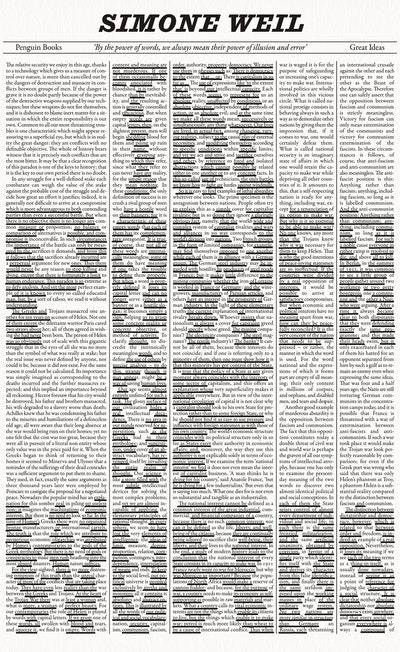Fionnáin reviewed The Power of Words by Simone Weil
Some Powerful Words
3 stars
Simone Weil is sometimes seen as a contentious philosopher, although I often wonder if that is mostly because she died young in a fraught time. Had her ideas developed, with a broader context, they might have resolved into more complete arguments.
This short compilation of three essays from the 1940s is a good example of her brilliance, her contentiousness and her unresolved ideas. The title essay is a thoughtful deep dive into how power is maintained through language, focussing on the dominant communist-fascist dichotomy of the time. The second essay, Human Personality considers individual and collective personhood, but makes broad claims about individuality that miss glaring counter-arguments that seem obvious, at least in today's philosophies. The third essay, The Needs of the Soul is from Weil's magnum opus, "The Need For Roots", and even in that book it felt unresolved. It deals with how rootedness and moral philosophy are entangled. …
Simone Weil is sometimes seen as a contentious philosopher, although I often wonder if that is mostly because she died young in a fraught time. Had her ideas developed, with a broader context, they might have resolved into more complete arguments.
This short compilation of three essays from the 1940s is a good example of her brilliance, her contentiousness and her unresolved ideas. The title essay is a thoughtful deep dive into how power is maintained through language, focussing on the dominant communist-fascist dichotomy of the time. The second essay, Human Personality considers individual and collective personhood, but makes broad claims about individuality that miss glaring counter-arguments that seem obvious, at least in today's philosophies. The third essay, The Needs of the Soul is from Weil's magnum opus, "The Need For Roots", and even in that book it felt unresolved. It deals with how rootedness and moral philosophy are entangled.
Overall, this is a good selection of Weil's work and a nice book to consider some of her ideas with, and to understand why she is both revered and derided by philosophers today.

